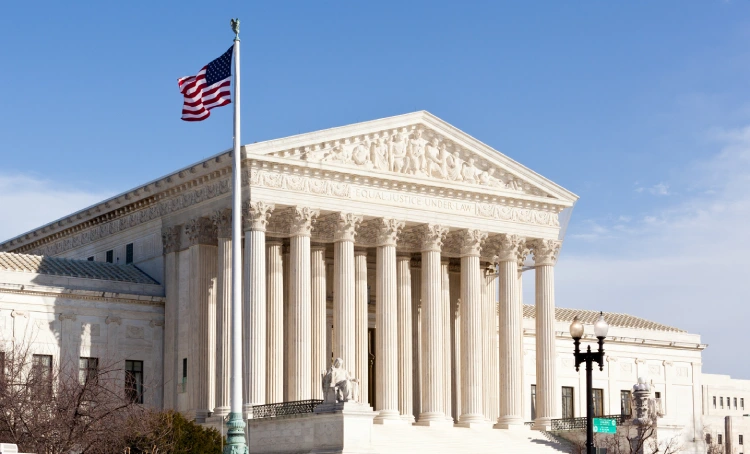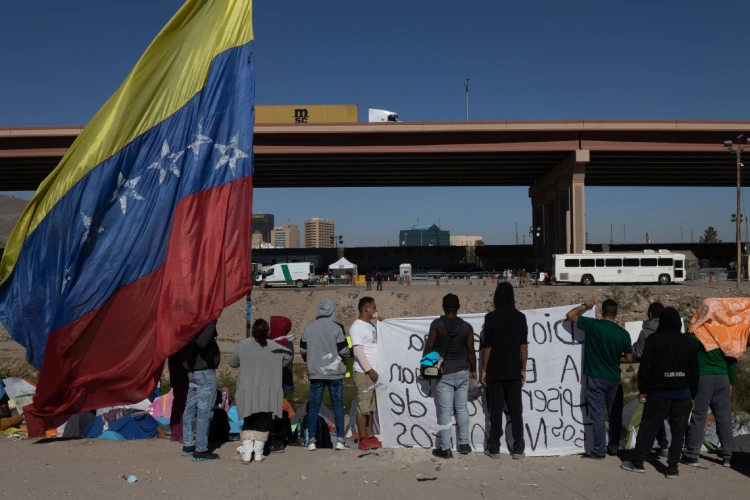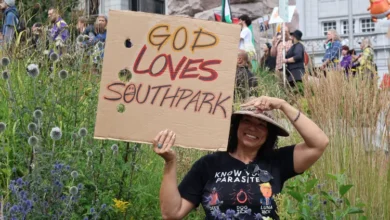
Supreme Court Temporarily Blocks Deportation of Venezuelans Under 18th-Century Wartime Law
Trump Administration’s Use of the Alien Enemies Act Faces Legal Scrutiny as ACLU Challenges Lack of Due Process
The U.S. Supreme Court has temporarily blocked the Alien Enemies Act deportation of a group of Venezuelan men detained in Texas, pausing the Trump administration’s use of a rarely invoked 18th-century law to justify swift removals.
Early Saturday, the Supreme Court issued a brief directive pressing pause on the removal of the Venezuelan detainees, instructing officials to hold off on any deportations for now.
The move comes amid mounting concerns that detainees were being removed without a meaningful chance to challenge their deportation in court.
A Law from 1798 Meets Today’s Immigration Fight

The Trump administration has leaned on the Alien Enemies Act—a law written during John Adams’ presidency—to fast-track the deportation of Venezuelan nationals it accuses of gang affiliation. Specifically, they’re targeting individuals allegedly linked to Tren de Aragua, a criminal group that originated in Venezuelan prisons.
Administration officials argue that the law gives them broad authority to remove foreign nationals deemed a threat, even outside a formal war. Legal advocates, however, say that relying on the act sidesteps key protections and sets a dangerous precedent for immigration enforcement.
Legal Scramble as Deportations Appear Imminent
On Friday, lawyers with the ACLU began filing urgent motions across several courts after learning that some migrants were already being moved to airports. An immigration lawyer said her Spanish-speaking client was presented with English-language deportation papers and pressured to sign them without any translation or explanation.
Another detainee was allegedly informed that he would be deported regardless of whether he signed anything at all.
The filings argued that the Trump administration was not following a previous Supreme Court ruling, which allowed deportations under the Alien Enemies Act only if migrants were given fair notice and enough time to contest the action in court.
Although ICE claimed no deportations were scheduled for Friday night, the ACLU presented statements from multiple immigration lawyers indicating otherwise.
Lower Courts Offered Little Relief
Two federal judges refused to issue emergency orders on Friday, despite acknowledging the seriousness of the situation. Judge James Hendrix in Texas said the government had submitted sworn statements that no immediate deportations were planned.
Judge James Boasberg in D.C., who had previously ruled against the administration, said his jurisdiction didn’t cover the Texas facility in question and that he was unable to intervene.
Boasberg noted concern over what he called “ambiguous” notices being handed to detainees, which he believes may violate the Supreme Court’s requirement for clarity and due process. He previously found probable cause that the administration had skirted his earlier order, raising the possibility of contempt.
Where the Case Stands
With the Supreme Court’s pause now in effect, the next move may depend on the Fifth Circuit Court of Appeals, which has not yet ruled on the ACLU’s filings. The high court has asked the administration to formally respond once the appellate court weighs in.
As legal challenges unfold, the case has become a test of how far executive power can extend under a centuries-old statute. The government maintains that it is following the Court’s guidance, but has declined to explain how much advance notice it believes is required before deportation.
Meanwhile, immigration advocates warn that without clearer rules—and more time—migrants risk being sent to dangerous conditions abroad, including to El Salvador’s overcrowded prisons, without ever seeing a judge.
Asked about the deportations, Trump didn’t delve into the legal concerns but doubled down on his stance, saying he supports swift action if the individuals involved are considered dangerous.
For now, the deportations are on hold—but the broader legal and constitutional questions remain unresolved




